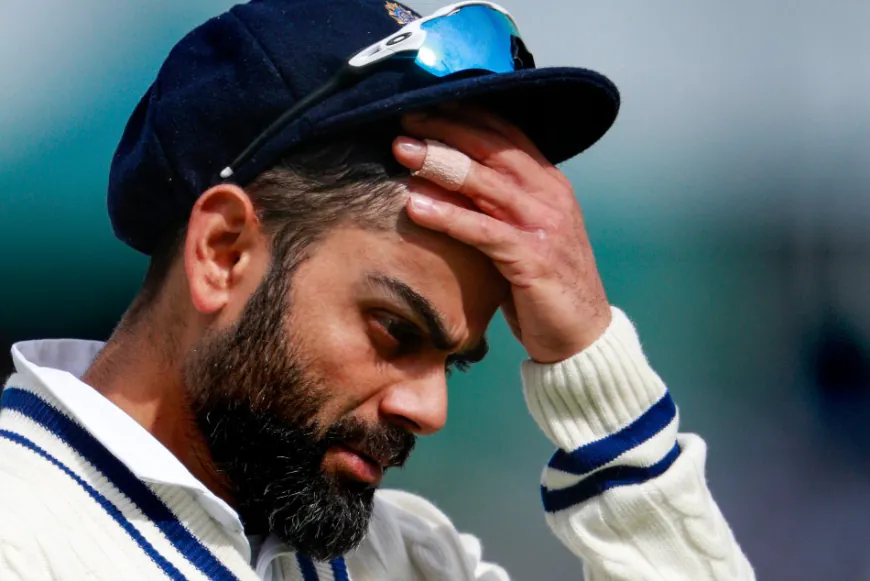Virat Kohli Speaks Out About Walking Away From Captaincy
Virat Kohli talks about stepping down as the captain of the Indian team and RCB, discussing the mental strain it imposed and how he came back to find pleasure again in the game.

Virat Kohli has at last spoken about why he decided to walk away from the captaincy of Team India and Royal Challengers Bengaluru. Following nearly eight years of leading India and nine seasons of RCB captaincy, he felt the pressure became overwhelming for him. The pressure of having expectations every time there was a match and every time there was an innings took a toll on him. Kohli discussed this freely in a podcast series of RCB Bold Diaries. He went on to say that he had come to the stage where the pressure of captaincy and constant glare on his batting started affecting his happiness. He said that he felt that he was always in the limelight whether for his captaincy or for batting with the bat. It started getting tiresome and he conceded that it took a toll on his mental peace.
He said he began to feel vulnerable every day and the pressure never eased. Kohli walked away from captaincy not because he had to but because he wanted to find peace in himself. He wanted to be at a stage where he could enjoy the game without feeling the burden of expectations on his shoulders. He revealed that in this difficult period he even stepped away from cricket in 2022 and didn't handle his bat for a month. This break allowed him to sit back and understand that he had to make room for freedom and joy in his life.
Kohli said that he had to be happy to perform at his best and have fun playing cricket once again. He no longer wished to feel judged all the time or to have to prove himself each time he went onto the pitch. Being captain-free meant he could concentrate more on his game and his own welfare. He explained that he wanted to play without people asking him what he will do next or what his future is.
Reflecting on his early years Kohli recalled that winning the Under-19 World Cup did not guarantee that he would get an easy ticket into the senior Indian team. He had to slog and prove himself time and again. Kohli revealed that initially in his career he was quite realistic about his talent and never felt that he was superior to others around him. But what he did possess was determination. He expressed that he was willing to sacrifice everything to make the team win. That fighting attitude is what set him apart and got him into the senior team.
He credited Mahendra Singh Dhoni and coach Gary Kirsten for supporting him in the initial stages. They gave him a clear message that he would bat at number three and that they had faith in him. Kohli stated that this support made him confident. Dhoni and Kirsten told him to play his natural game and appreciated the energy he brought onto the field. He was not regarded as someone who could turn the game around immediately but rather as a player who would never quit. His passion and determination to remain in the fight made him an asset to the team.
Kohli also revealed how crucial nervous energy is to a cricketer. His take is that the nervous feeling itself is more of an indicator that a player remains eager to deliver and contribute. He declared that even though someone might have achieved a good amount of runs, that sense of nervous energy preceding a game never actually does dissipate. It is that which keeps one attuned to the moment and also keeps a player on the go. As per Kohli if a player ceases to feel nervous or excited prior to a match it could be an indication that they are no longer completely into the game.
He added that being engaged mentally is what keeps a player going. Kohli still feels that energy before games and it helps him stay sharp. For him it’s not just about how many runs he scores but about staying connected to the game and giving everything on the field. That passion and mindset have always defined his journey.
During all of this, Kohli reiterated that it was his decision to step away from captaincy. It was for his happiness and well-being. It wasn't about surrendering but opting for a healthier choice for himself. He desired to keep loving cricket without having to bear the pressure of ceaseless expectations all the time. His words reflected the human face of a man who has lived years in the limelight.



 admin
admin